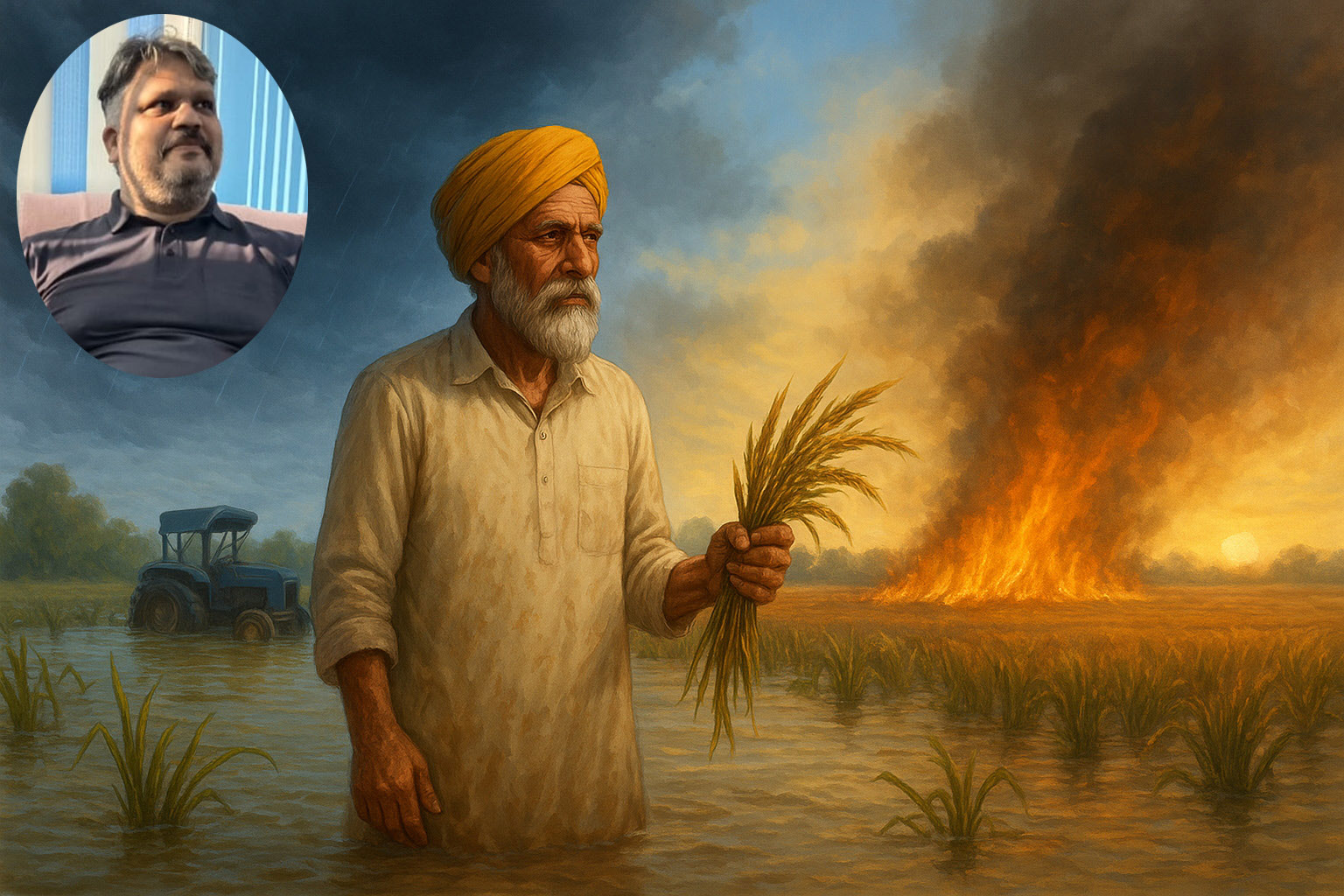Challenges of the Agricultural Sector
The farmers of our country have been victims of nature’s wrath for centuries. The economy of farmers, agricultural laborers, and their families has remained enslaved to the vagaries of the weather. Sometimes floods, sometimes drought, hailstorms, or sometimes a ripened crop falls prey to fire. A good crop yield brings prosperity, but it always depends on the mercy of God. This year, heavy rainfall and devastating floods,
The farmers of our country have been victims of nature’s wrath for centuries. The economy of farmers, agricultural laborers, and their families has remained enslaved to the vagaries of the weather. Sometimes floods, sometimes drought, hailstorms, or sometimes a ripened crop falls prey to fire. A good crop yield brings prosperity, but it always depends on the mercy of God. This year, heavy rainfall and devastating floods, particularly in northern India and especially in Punjab, have caused widespread destruction. During August and September this year, Punjab witnessed the most severe form of rainfall since 1988. Twenty-three districts of the state were affected by floods, and nearly 60 people lost their lives. The districts of Gurdaspur, Fazilka, Firozpur, Kapurthala, and Amritsar were the worst hit by these floods. Over 19,000 villages were submerged in water. Standing crops and livestock suffered significant losses. The farmers had not yet recovered from this damage when unseasonal rains in recent days have further exacerbated their difficulties. Ripened crops like rice, cotton, and other cash crops have been severely damaged. The crops that reached the markets are being ruined due to the lack of proper storage facilities in the face of rainwater. Governments have announced compensation, but everyone knows how and how much of it is actually delivered.
In the month of October, the harvesting of the rice crop is generally completed, and the season for sowing wheat begins thereafter. Due to the shortage of time, incidents of burning crop residue (parali) in the fields are often reported. Although farmers cite their compulsion for burning parali, this practice has adverse effects on the environment and other natural resources. The issue of parali burning has been ongoing for years. Governments raise awareness about its harmful effects. Several measures are also being taken to curb this practice. Suggestions are given to adopt scientific and technical methods to incorporate parali into the soil instead of burning it. Farmers, however, have their own compulsions and reasoning.
After China, India is the second-largest rice-producing country in the world. After the rice harvest, farmers have very little time to sow wheat. The parali left in the rice fields becomes a major problem. The cheapest and easiest solution that farmers see is to set fire to it in the fields. However, this has detrimental effects on the environment and the health of living beings. Burning parali releases dangerous chemicals and gases into the air. These primarily include carbon dioxide, carbon monoxide, nitrogen oxide, sulfur dioxide, and methane, which are harmful to human health. According to an estimate, India produces 352 metric tons of parali annually. After the rice harvest, approximately 84 metric tons of parali are burned in the fields each year. The smog often seen in northern India during winters is attributed to the smoke from parali burning. Besides air pollution, this practice also severely affects the fertility of the soil. The fire destroys the habitats of many creatures and birds. While the fire in the fields destroys beneficial microorganisms in the soil, it also reduces soil quality and contributes to water scarcity.
Governments are constantly making efforts to raise awareness through various media to stop this dangerous practice. Additionally, strict laws have been enacted to protect the environment from pollution, and amendments are made from time to time to implement them effectively. Under the Environment Protection Act of 1986, burning parali is a crime, and penalties are prescribed for its violation. Recently, the Honorable Supreme Court issued strict guidelines in this regard, stating that parali burning violates the fundamental right of citizens to breathe clean air.
Be that as it may, farming has always been a profession fraught with challenges. For the proper disposal of parali, cooperative societies should provide the necessary machinery at affordable rates and with subsidies. Farmers and those associated with the agricultural sector are truly our food providers. Their well-being is integral to the nation’s well-being.
Davinder Kumar


